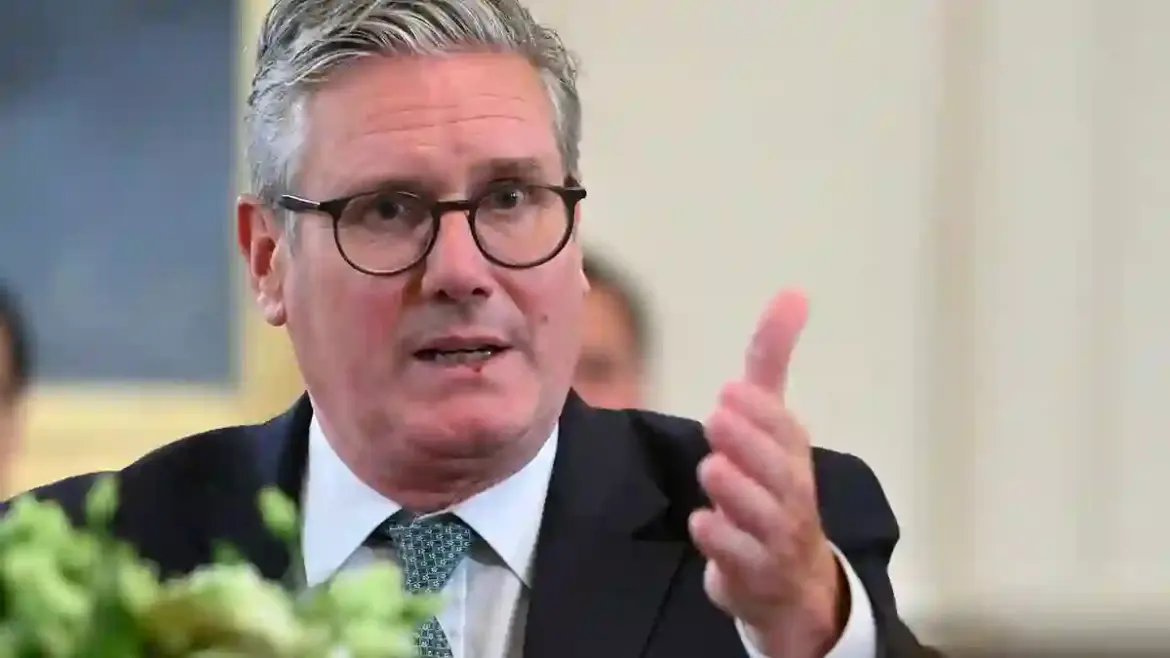Labour leader Keir Starmer has made a bold move to tighten his grip on economic policy, signaling that he wants to personally steer the country’s finances this autumn.
The reshuffle sees him sidelining Chancellor Rachel Reeves and bringing in a team of economic heavyweights to guide his approach to the upcoming Budget.
The shake-up comes after a turbulent period for Labour, with U-turns on winter fuel payments and benefit cuts contributing to record-low poll ratings.
By assembling his own advisers, Sir Keir aims to avoid being caught off guard by Treasury decisions and prevent similar missteps in the future.
Starmer Poaches Key Economic Experts
In a strategic shift, the Prime Minister has recruited his own economic experts, including former Treasury chief secretary Darren Jones, ex-Bank of England deputy governor Minouche Shafik, and Treasury minister Dan Tomlinson.
This move effectively ends Starmer’s previous reliance on Reeves to shape economic policy.
Downing Street insists the PM and Ms Reeves will still work closely together, but insiders suggest her influence may be waning.
One Labour MP told The Telegraph that the reshuffle highlights Reeves’ “already weak and deteriorating position.”
Tories Slam Labour’s ‘Tax Fanatics’
The Conservative Party has been quick to criticise Starmer’s choices, describing his new advisers as a team of “tax fanatics.”
They argue the appointments signal a Labour government intent on plugging a potential £50 billion gap in public finances with heavier taxation.
Conservative business spokesman Andrew Griffith added: “A stronger Prime Minister would have gone the whole way and fired Ms Reeves, not just created his own shadow chancellor.”
Meanwhile, former Tory cabinet minister Sir James Cleverly suggested the reshuffle is a precursor to sidelining Reeves entirely.
Starmer Signals a ‘Second Phase’ of Government
Despite criticism, Sir Keir framed the changes as part of the Government entering a “second phase,” with a focus on what he calls “delivery, delivery, delivery.”
Speaking to the BBC, he admitted he was frustrated at not moving faster but insisted the reshuffle is about ensuring priorities are implemented more efficiently.
His chief of staff, Morgan McSweeney, known for his behind-the-scenes role in Labour’s election victory, was also spotted at No 10, signalling his continued influence in shaping the party’s strategy.
Economic Experts Bring Wealth Tax Perspectives
The new team of advisers brings some high-profile economic viewpoints.
Minouche Shafik, now Chief Economic Adviser to the PM, has previously advocated wealth taxes and inheritance levies to address inequality.
Dan Tomlinson, the newly appointed Treasury minister, has also supported higher capital gains tax and measures to make the tax system fairer for working people.
Darren Jones, who will serve as Chief Secretary to the Prime Minister, has been vocal about using council tax and inheritance tax to tackle intergenerational inequality, marking him as the clear beneficiary of the reshuffle.
James Murray, his replacement as Chief Secretary to the Treasury, also shares a similar approach on wealth taxes.
Communication Shake-Up Brings Back Blair-Era Spin Doctor
On the communications front, Sir Keir has appointed his third head of communications in a year, bringing back Tim Allan, a veteran of the Blair era and former aide to Alastair Campbell.
The move highlights the PM’s intent to strengthen messaging alongside his economic overhaul.
Economist Paul Johnson commented that it’s remarkable that more than a year into the government, Starmer is only now assembling senior economic expertise at No 10, both politically and adviser-wise, underscoring the strategic significance of the reshuffle.


